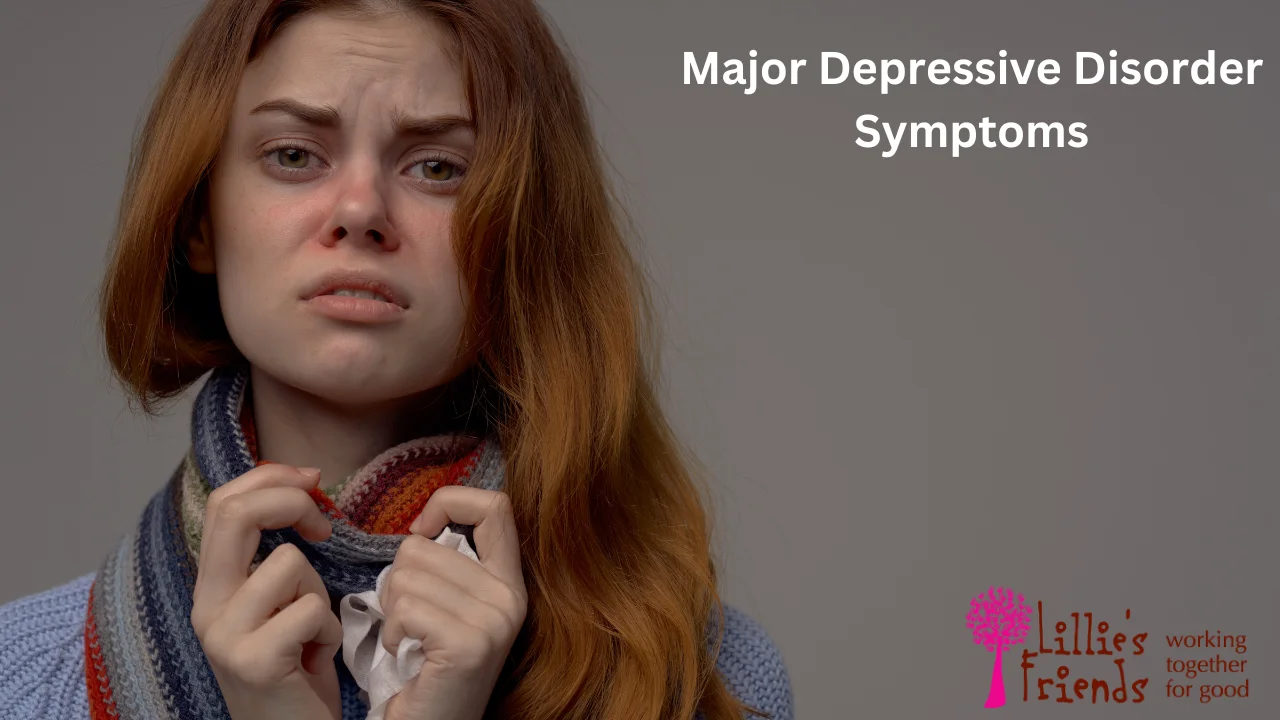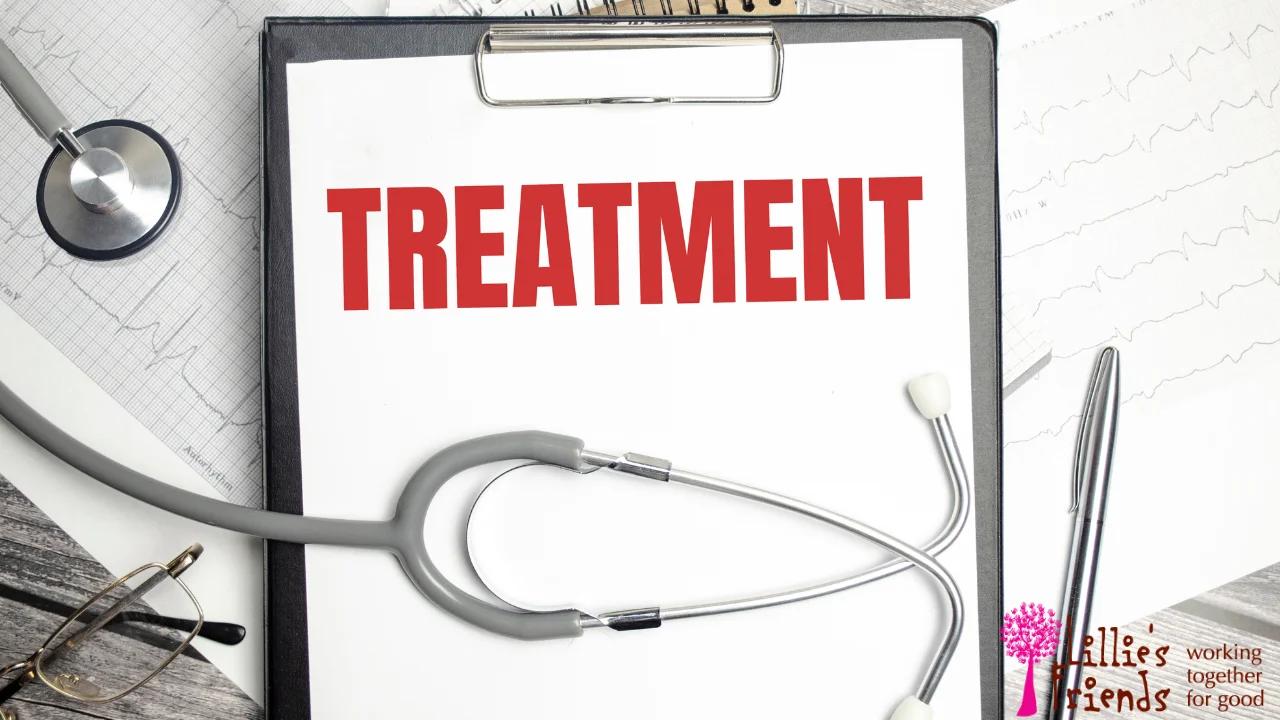It goes without saying that melancholy is a normal aspect of existence. When a loved one dies or goes through a difficult time in life, one may feel melancholy or sad. Since these emotions are usually fleeting, if they continue for an extended period of time, it might be a sign of a mental illness like major depressive disorder (MDD).
Major depressive illness, sometimes referred to as clinical depression, may affect a person in a variety of ways. It has an impact on mood, behavior, and bodily processes, including eating and sleep.
One of the most prevalent mental health disorders in the nation is major depressive disorder (MDD), with over 7.8%↗ of adults reporting having experienced depression. Gaining knowledge about this illness may help prevent unwanted effects. This is all that one needs to know.
Major Depressive Disorder Symptoms
When someone is depressed, they often have anhedonia, which prevents them from going about their daily business. The symptoms might become worse or get better as the illness progresses. While the symptoms of major depressive illness vary from person to person, the following are the most typical ones:
- A decline in interest in once-enjoyed hobbies
- Persistent depressive or anxious sensations
- Variations in appetite and weight
- Sleeping too much or having trouble falling asleep
- Decreased movement, thought, or speech rate
- Anger and heightened restlessness
- A decrease in energy and fatigue
- Having trouble focusing and making judgments
- Persistent emotions of unjustified shame or unworthiness
- Constant contemplation of death and suicide
The Treatment of MDD
A person with depression may be able to overcome their unhappiness and hopelessness and feel inspired to be happy again with the help of the correct treatment. One or more of the following therapies may be used in the treatment of major depressive disorder:
Drugs
Selective serotonin reuptake inhibitors, or SSRIs, are the most often prescribed antidepressant type for MDD because they raise serotonin concentration in the brain, which is thought to be low in depressed individuals. A neurotransmitter (chemical in the brain) called serotonin aids in promoting sound sleep habits and elevating mood. Well-known SSRIs include fluoxetine (Prozac) and citalopram (Celexa).
In addition to SSRIs, MDD patients may be administered SNRIs (serotonin and norepinephrine reuptake inhibitors), such as duloxetine (Cymbalta) and venlafaxine (Effexor XR). They stop serotonin and norepinephrine from being reabsorbed, which is necessary for mood enhancement.
Bupropion (Wellbutrin), mirtazapine (Remeron), trazodone (Desyrel), and nefazodone (Serzone) are other FDA-approved medications for the treatment of MDD. The doctor will ultimately choose the medication based on a patient’s medical history, the severity of the ailment, and the drug’s compatibility. Before prescribing a medication to a patient, doctors also consider the drug’s advantages and disadvantages.
Never think that just because you feel better, you can stop taking your depression medication. A doctor’s advice should always be sought before abruptly stopping medicine because this might raise the risk of withdrawal symptoms, relapse, or dysthymia.
Psychotherapy
The goal of psychotherapy is to alter one’s skewed or negative perceptions of oneself or a circumstance. Relationships are strengthened, and the primary stressors in one’s life are identified and managed.
One can learn coping mechanisms for negative emotions and thought patterns by regularly speaking with a therapist. One can talk about problems in their life that are making them feel hopeless during psychotherapy sessions.
Psychotherapists are trained and experienced in a variety of techniques that can help people recover from mental illnesses, deal with deeply ingrained personal issues, and improve their lives. Depending on each client’s unique needs for a speedy recovery, they use a variety of verbal and psychological strategies.
Cognitive-behavioral therapy (CBT) is the psychotherapy approach most frequently used to treat MDD. It is based on the notion that people’s thoughts can affect how they feel. It has long-lasting effects despite being goal-oriented and short-term. In order to improve mood, cognitive behavioral therapy (CBT) teaches patients to recognize patterns of cognitive distortions, or negative thinking, and to replace them with more constructive ones. With a behavioral component, cognitive behavioral therapy (CBT) also helps people improve their emotional reactions to various circumstances and resume productive activities to improve their general well-being.

The Management of Major Depressive Disorder
With the correct care, a person suffering from depression may be able to overcome their feelings of despair and unhappiness and regain their motivation to be joyful. Treatment for major depressive disorder may include one or more of the following interventions:
Health Care
SSRIs (selective serotonin reuptake inhibitors) are the most often prescribed antidepressant type for MDD because they raise serotonin concentration in the brain, which is thought to be low in individuals with depression. A neurotransmitter (chemical found in the brain) called serotonin helps promote restful sleep and elevate mood. Prozac (fluoxetine) and citalopram (Celexa) are two well-known SSRIs.
In addition to SSRIs, MDD patients may also be administered SNRIs (serotonin and norepinephrine reuptake inhibitors), such as duloxetine (Cymbalta) and venlafaxine (Effexor XR). They hinder the reabsorption of serotonin and norepinephrine, which are necessary for elevating mood.
Since monoamine oxidase inhibitors (MAOIs) and tricyclic antidepressants are known to raise serotonin, norepinephrine, and dopamine levels in the brain, they may also be used to treat major depressive disorder (MDD). Unlike tricyclic antidepressants like amitriptyline (Elavil), nortriptyline (Pamelor), and doxepin (Silenor), MAOIs include medications such as transdermal selegiline, isocarboxazid (Marplan), tranylcypromine (Parnate), and phenelzine (Nardil). However, since they have a weaker safety profile than the newer antidepressants, these medications are no longer as often given for depression.
Bupropion (Wellbutrin), mirtazapine (Remeron), trazodone (Desyrel), and nefazodone (Serzone) are other FDA-approved medications for the treatment of MDD. Ultimately, the doctor’s decision on medicine will be based on a patient’s medical history, the severity of the ailment, and the drug’s appropriateness. Before prescribing medications to patients, doctors consider both the advantages and disadvantages of each one.
It is never appropriate to think that just when depression symptoms improve, one may stop taking their medication. Consult a physician before stopping a drug since abruptly stopping it might raise your chance of developing withdrawal symptoms, relapsing into depression, or developing dysthymia.
Psychoanalysis
The main goal of psychotherapy is to alter any inaccurate or negative beliefs that a patient may have about themselves or a circumstance. It also improves relationships and helps in identifying and managing the major stresses in a person’s life.
Talking with a therapist on a regular basis may assist in developing coping mechanisms for unpleasant feelings and thought habits. One might speak up about problems in their lives that are giving them hopelessness during psychotherapy sessions.
Psychotherapists may assist individuals in healing from mental illnesses, resolving deeply ingrained psychological difficulties, and making good life changes since they have had formal training and experience in a number of these strategies. Various linguistic and psychological strategies are used, depending on the client’s specific requirements for a speedy recovery.
Cognitive-behavioral therapy is the psychotherapy technique most often used to treat MDD (CBT). It is based on the notion that a person’s ideas could affect their feelings. Despite being goal-oriented and short-term, it has long-lasting effects. With the use of cognitive behavioral therapy (CBT), patients may learn to recognize negative thought patterns and replace them with more constructive ones in order to elevate their mood. In addition to its behavioral component, cognitive behavioral therapy (CBT) helps people improve their emotional reactivity to various circumstances and resume productive activities that improve their general well-being.
Electroshock Treatment (ECT)
Electroconvulsive therapy may be recommended for someone with severe, potentially fatal MDD who is not responding to current therapies. A short seizure is caused by a small electrical current that is sent into the brain by a qualified medical expert during an ECT session. It has been shown that seizures may correct chemical imbalances in the brain and lessen severe depressive disorder symptoms.
The patient is unconscious while ECT is given to them. This therapy is managed by a group of medical experts that includes a psychiatrist, nurse, anesthesiologist, and physician assistant.
To ascertain a patient’s suitability for ECT, they go through a psychological and physical evaluation before scheduling an appointment. An electrocardiogram (ECG) for heart health, a simple blood test, and a comprehensive medical examination are all part of the physical assessment. Prior to the start of treatment, informed permission must also be obtained in writing or be provided by a guardian.
Even if ECT helps patients with MDD, the illness shouldn’t be treated with it. After receiving ECT, maintenance therapy is necessary to stop relapses in depression. Psychotherapy, medicine, or continued ECT treatments are possible components of the maintenance treatment.
Self-Care Techniques to Control the Symptoms of MDD
MDD may leave a person feeling worn out, useless, powerless, and without hope. This may be risky in a number of ways, such as the incapacity or lack of desire to ask for assistance. But certain self-care routines and lifestyle adjustments may help someone get rid of MDD symptoms so they’re ready to see a doctor for expert assistance. Among these methods are the following ones:
- Making friends and confiding in others
- Prioritizing and dividing up big tasks into smaller ones
- Indulging in enjoyable activities like gardening, seeing a movie, or volunteering
- Getting regular exercise
- Consuming wholesome, balanced foods
- Refraining from drink and drugs
But the advice given above is merely meant to be additional assistance. Seeing a doctor as soon as MDD symptoms appear is advised; treating such a severe ailment on your own is not advised. A mental health specialist will correctly diagnose you, assist you in establishing reasonable expectations for the course of therapy, and create an efficient treatment plan for you.
In Conclusion
Even though someone who suffers with MDD may feel hopeless at times, it’s crucial to remember that there are solutions available for treating the illness. For the greatest results, adherence to the recommended treatment regimen is required. Additionally, if a person is still depressed after receiving treatment, they should seek assistance from a local crisis center or mental health expert.











